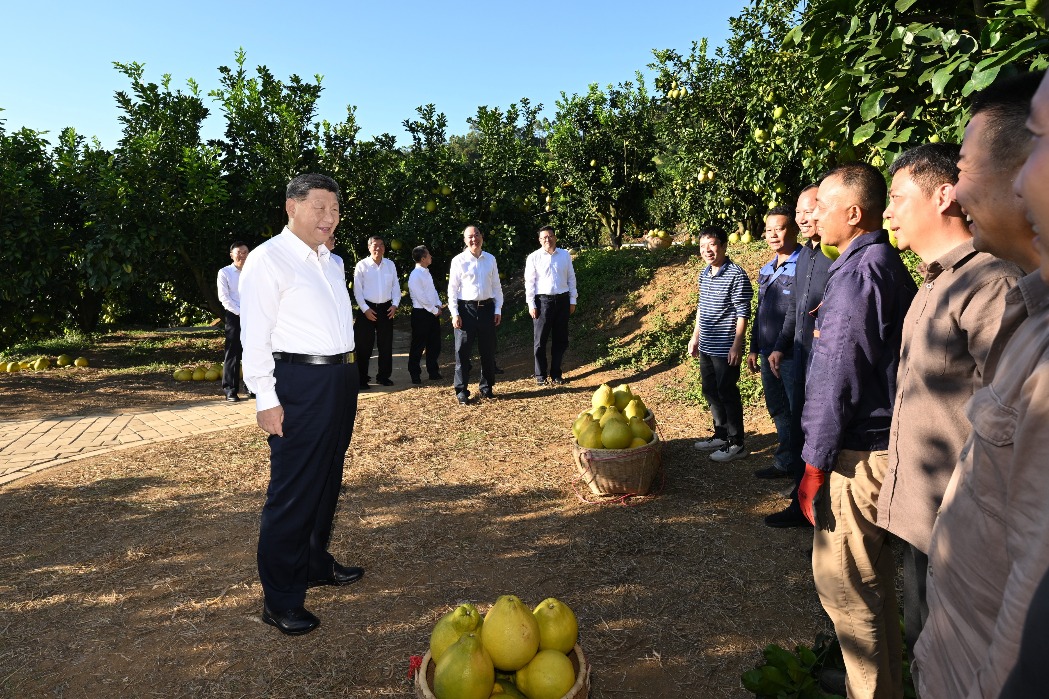Japan's manipulative move over the Taiwan question puts peace at risk


Japan's insistence on allowing Lin Chia-lung, head of Taiwan's "foreign affairs department", to enter the country violates the understanding previously reached between China and Japan.
The political manipulation of Lin's visit by Japan deliberately highlights the so-called Japan-Taiwan friendship, creates the illusion of "friendly interaction", condones his provocative activities and encourages "Taiwan independence" in blatant violation of the one-China principle.
The Taiwan question is purely China's internal affair and a key part of China's core interests. It brooks no interference by any external force in any form. The one-China principle is a red line that cannot be crossed in China-Japan relations.
Japan's actions are a serious challenge to the consensus of the international community and the basic norms of international relations. The principle of sovereignty is the cornerstone of the United Nations Charter. The one-China principle is the political foundation for establishing and developing diplomatic relations between China and other countries. Adhering to the one-China principle means opposing any form of the so-called Taiwan independence.
Japan's conduct has also shaken the political foundation of China-Japan relations and eroded the basic trust between the two countries. The four political documents between China and Japan, which serve as the cornerstones of bilateral relations, clearly stipulate that Japan should abide by the one-China principle and recognize Taiwan as an inseparable part of China's territory.
As a defeated country in World War II, Japan's behavior is a serious violation of the post-war international order. A series of documents with international legal validity, such as the Cairo Declaration, Potsdam Proclamation and Japan's Instrument of Surrender, laid the foundation for the post-war international order. The return of Taiwan to China is one of the outcomes of World War II and an important component of the post-war international order. This is backed by undeniable historical and legal facts.
This year marks the 80th anniversary of the victory of the Chinese People's War of Resistance against Japanese Aggression and the World Anti-Fascist War, as well as the 80th anniversary of Taiwan's liberation from Japanese occupation in World War II. Japan bears historical responsibility in the Taiwan question, and should be particularly cautious in its words and actions. At this special historical juncture, its decision to invite a Taiwan separatist is a betrayal of justice.
Japan has selfish motives of wooing the separatist forces in Taiwan to serve its domestic politics. Japanese politicians are plotting to use the "Taiwan card" to stir up regional tensions and contain China. But these actions have exposed their sinister intention to exploit the Taiwan question for geopolitical ends.
Japan's support of the separatist independence forces in Taiwan amounts to interference in China's internal affairs. Condoning "pro-independence" forces in Taiwan will destabilize the Taiwan Strait, and cause trouble for Japan itself. These short-sighted and selfish actions not only step on the red line of China-Japan relations, but could also harm its own security and undermine regional peace and stability.
A country will not prosper without trust. Japan should deeply reflect on its historical guilt, and comply with the solemn promises on the Taiwan question. It should effectively fulfill its international legal obligations, not play the trick of "keeping promises verbally but crossing boundaries underfoot", and promote the healthy and stable development of China-Japan relations.
History has shown that any attempt to challenge the international rule of law and order, or interference in the internal affairs of other countries, inevitably face opposition from the international community and invite condemnation. The one-China principle can never be undermined.
The author is a professor of the Institute of Japanese Studies, Chinese Academy of Social Sciences. The views don’t necessarily reflect those of China Daily.
If you have a specific expertise, or would like to share your thought about our stories, then send us your writings at opinion@chinadaily.com.cn, and comment@chinadaily.com.cn.


































